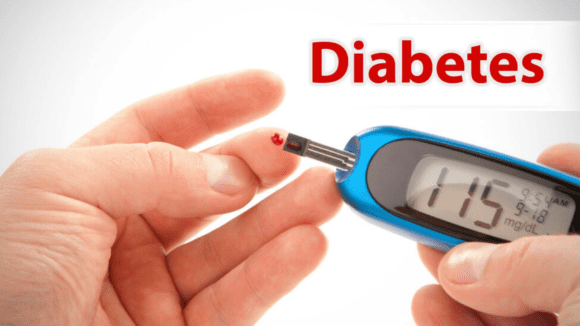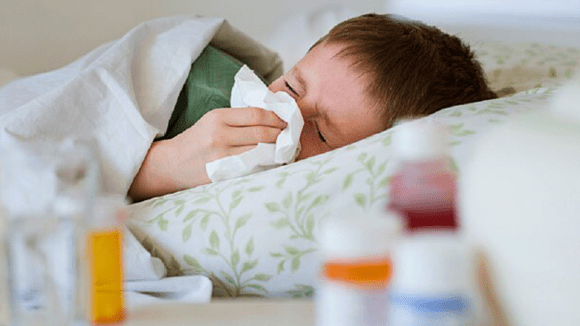
what to do to avoid dengue fever
14 people have died due to dengue fever in the country this year. Besides, from January 1 to August 5, according to the information of the Department of Health, 3 thousand 97 patients were admitted to the hospital. Among them, two thousand 604 patients were admitted in Dhaka and 493 patients were admitted outside Dhaka.
Also read : What is needed for good sleep
According to the notification of the Health Emergency Operation Center and Control Room of the Department of Health, 380 dengue patients are currently under treatment in various hospitals across the country. Among them, 306 patients are in different hospitals in Dhaka and 74 patients outside Dhaka.
Dengue is a viral fever. There are four types of fever: Den-1, Den-2, Den-3 and Den-4.
Fever, headache, pain behind the eyes, muscle pain and rash are the main symptoms of dengue. Dengue can be fatal for children of all ages, pregnant women, the elderly and those with pre-existing medical conditions. So, if fever or any other symptoms appear in the body, do not neglect it and consult a doctor immediately.
What to do to prevent dengue fever
Get doctor’s advice: Virus fever is not understood normally, former chairman of the medicine department of Bangabandhu Sheikh Mujib Medical University and personal physician of the Prime Minister Dr. ABM Abdullah.
According to him, in case of fever, it should be confirmed whether it is dengue through a blood test. All doctors in Bangladesh know more or less about dengue. There is no need to go to a medical specialist in case of dengue. Consultation can be taken from any General Physician or Private Practitioner.
If there are any special complications, you can go to a specialist doctor. There is no specific treatment for dengue. However, if you follow the doctor’s advice, you can recover in a few days in most cases.
Get complete rest: Dr. Abdullah said, people become weak when they are sick. Dengue fever makes the body very sluggish. Fever can rise up to 105 degrees Celsius. Body pain, headache, joint pain may be felt. In many cases the patient also develops breakbone fever. Dengue hemorrhagic fever sometimes causes bleeding. Rash appears after four to five days. Bleeding from brushing teeth, nosebleeds, urine and stool can also cause blood.
In women, period bleeding takes longer than usual. Rest is not an option at this time. It is impossible to get rid of dengue without rest. Besides, the physical condition of the patient may worsen due to heavy work.
Be aware of food and drink: There is no catch-and-break rule when it comes to eating when you have dengue. But drink plenty of water. In case of dengue, the patient’s plasma leakage causes water deficiency in the body. Regular intake of electrolyte-rich fluids such as fruit juice, water, oral saline, bottled water, etc. will reduce plasma leakage.
Simple foods rich in carbohydrates, protein and vitamin C cannot be stopped. Practice healthy home-cooked meals. Negligence in drinking water can also lead to serious kidney problems. Routinely avoid unhealthy street food, oily or spicy fried foods and caffeinated drinks.
What to do to reduce fever: Dengue fever is very high temperature. If the fever increases, wipe the body with water for some time. Oral paracetamol tablets and syrup for children will continue. Suppositories should be used after consultation with the doctor if not in the form of oral intake.
Medicines like aspirin should not be taken without a doctor’s advice to relieve pain. Apart from Paracetamol, no other pain killers can be taken. Do not take more than four grams of paracetamol a day. Those with pre-existing heart, liver or kidney problems must consult a doctor before taking the medicine.
What to do after fever: Fever can go away without any treatment. If the fever subsides in three to seven days, many people think they are cured. It cannot be done at all. Difficulties may persist even after the fever subsides. After four to five days of fever, there may be rashes, allergies or itching on the body. At this time, you will know the condition of platelets in the blood by doing a blood test.
If you have dengue hemorrhagic fever, you must do this test. The time after fever is very critical. Within 24 to 48 hours after the fever subsides, severe abdominal pain, persistent vomiting, bleeding from the nose or gums, enlarged liver, hemoptysis, dark stools or decreased urine should be admitted to the hospital immediately and treated. This time should not be neglected at all. Dengue shock syndrome may occur if treatment is stopped suddenly.
Understand Platelet Count: Platelets are part of blood. They help protect our immune system. Know the value of platelets regularly. If it is less then try to increase platelet count with doctor’s advice. Normally, platelet count in human blood is between one and a half to four lakh per 100 milliliters. The number of platelets decreases in various viral infections. Platelet count can drop dramatically in dengue fever. Platelet drops below 100,000 are very dangerous for the patient. If so, you have to test once every day.
If the platelets drop below 20,000 due to dengue, the risk of bleeding increases. Taking painkillers to reduce pain can also cause low platelets. It also increases the risk of bleeding. Although various scientific experiments have shown that consumption of papaya leaf juice increases the platelet count in the body, its effectiveness in directly curing dengue is yet to be proven.
Use mosquito nets to prevent infection: Dengue is not a contagious disease. Dengue can only be transmitted by the bite of the Aedes mosquito that carries the virus. Therefore, dengue patients must use mosquito nets. If you go outside the mosquito net, you should wear full sleeve clothes. Mosquito repellent sprays or gels can be used for protection.
Special precautions for re-dengue sufferers: Recovery does not mean that the patient is risk-free. When someone is infected with a form of dengue, the body develops immunity against the virus. But that does not mean that the patient will not get dengue again. Rather, he may be infected with stronger forms of dengue this time. Complications such as hemorrhagic fever or shock syndrome may then occur. Even the second, third or fourth time there is a chance of re-infection from a stronger variant of dengue.
According to the World Health Organization (WHO), it is safe to get the vaccine to prevent dengue again once you have had dengue.
Doctor ABM Abdullah’s advice on dengue eradication: Everyone knows more or less about the onset of dengue. We have to take care that the reproduction of Aedes mosquito does not increase. Avoid mosquito bites. Aedes mosquitoes carrying the dengue virus live and breed in different places in houses and yards. Aedes mosquito lays eggs if water accumulates in a place for a long time. Therefore, places where water accumulates including cans, cans, tires, flower tubs should be kept clean regularly. To eliminate dengue, everyone must be aware.
Source: Voice of America
| tags : What to do to avoid dengue, What to do to avoid dengue, what to do to avoid dengue fever,What to do to prevent dengue fever,What to do to avoid dengue, What to do to avoid dengue, what to do to avoid dengue fever,What to do to prevent dengue fever,What to do to avoid dengue, What to do to avoid dengue, what to do to avoid dengue fever,What to do to prevent dengue fever,What to do to avoid dengue, What to do to avoid dengue, what to do to avoid dengue fever,What to do to prevent dengue fever,What to do to avoid dengue, What to do to avoid dengue, what to do to avoid dengue fever,What to do to prevent dengue fever, |












